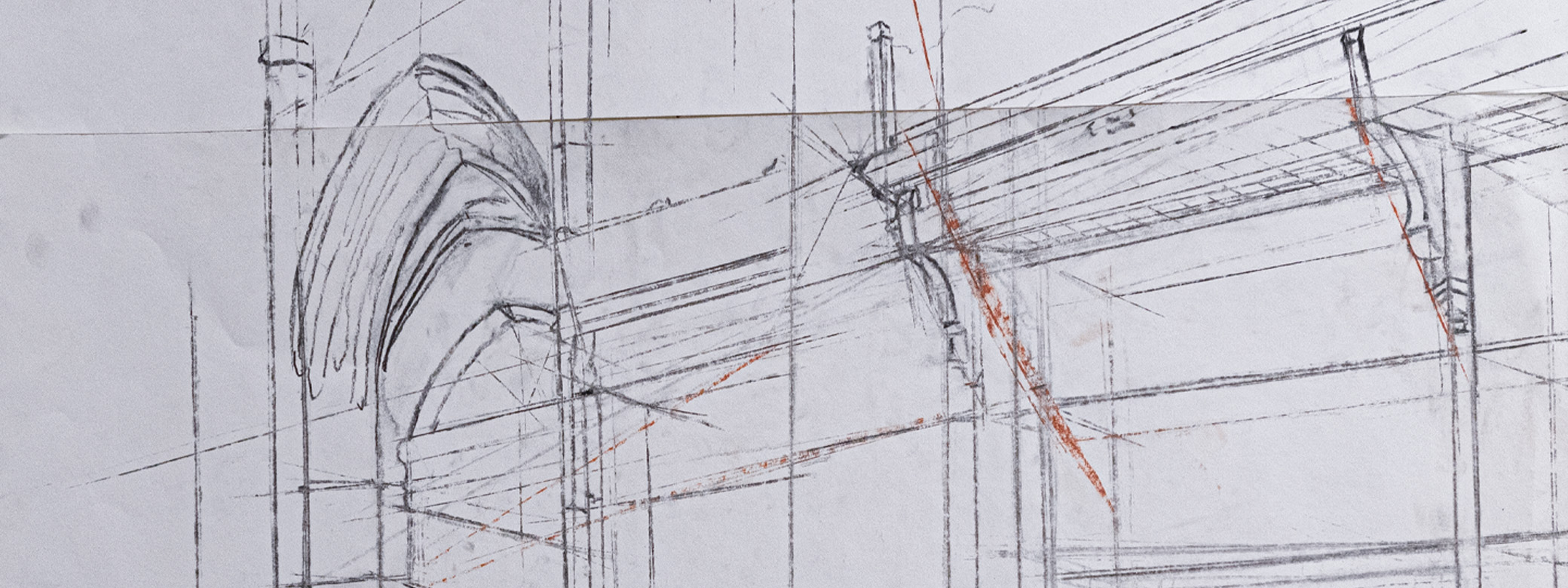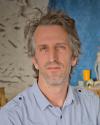Intro to Ceramics: ART 253 C: Fall 2023
Professor: Michael Swaine
Office Hours: By appointment only
e-mail: swaine@uw.edu
#18 on this link below ....
https://art.washington.edu/general-policies
************************
matter(s) of concern turning
into matter(s) of action
This ceramic class will push how far a material can stretch in space and time. We will look at mud, clay & ceramics, all with the lens of action and interaction. How can objects that we make become tools for conversation, props for protest? Can Clay compete with twitter? Can we get MUD into our facebook? Can chat GP3 help us?
"the aim of art
is to uncover the questions
that have been occluded
by the answers"
- James Baldwin
"The public realm, as the common world, gathers us to gather and yet prevents our falling over each other, so to speak. What makes mass society so difficult to bear is not the number of people involved, or at least primarily, but the fact that the world between them has lost its power to gather them together, to relate and separate them. The weirdness of this situation resembles a spiritualistic seance where a number of people gather around a table might suddenly, through some magic trick, see the table vanish from the midst, so that two persons sitting opposite from midst, so that two persons sitting opposite each other were no longer separated but also would be entirely unrelated to each other by anything tangible." (p.48-The Human Condition-Hannah Arendt)
Please watch these videos during the first few weeks -enjoy
more to see:
https://www.instagram.com/p/BFz9mrcDCjh/
http://www.annhamiltonstudio.com/videosound/aleph_video.html
http://www.williamforsythe.de/installations.html
https://www.theguardian.com/world/video/2014/feb/19/ai-weiwei-vase-miami-art-gallery-video
The academy is not paradise. But learning is a place where paradise can be created. The classroom with all its limitations remains a location of possibility. In that field of possibility we have the opportunity to labour for freedom, to demand of ourselves and our comrades, an openness of mind and heart that allows us to face reality even as we collectively imagine ways to move beyond boundaries, to transgress. This is education as the practice of freedom. (bell hooks 1994: 207)
http://art.washington.edu/advising/policies/general/ (Links to an external site.)
2022-23 Policies
- Equal Opportunity
- In concurrence with the University of Washington’s core values, and in compliance with State and federal regulations, the School of Art + Art History + Design reaffirms its commitment to equal opportunity. The commitment extends to the recruitment of faculty, staff, and students who exhibit a dedication to creative and academic excellence and who demonstrate the ability to work with a diverse spectrum of populations.
- Diversity
- The School of Art + Art History + Design fosters a respectful, inclusive community that supports creative and critical expression and scholarship amidst a culture that accepts the value of every individual. The School encourages students, faculty, and staff to engage in healthy dialogue and respect the values and global perspectives of a diverse population. The School promotes and encourages a culture of compassion, understanding, and an obligation to respectful discourse in classrooms, meeting rooms, studio spaces, and beyond. The School’s philosophy is reflected in our engagement with community partners and research endeavors locally, nationally, and gl
- Student Code of Conduct
- The University of Washington has established rules regarding student conduct. Through the Student Conduct Code, UW students hold themselves to the highest standards of ethics, integrity and accountability. More information at UW Community Standards & Student Conduct (CSSC): https://www.washington.edu/cssc/for-students/student-code of-conduct/
- If you have questions or concerns please contact the CSSC Team at 206-685-6194 or cssc@uw.edu
- Equipment and Materials Safety
- Substances and equipment used in creative processes can be hazardous.
- Enrollment in a class requires students to know, understand, and comply with all safety and equipment use policies for each classroom/studio.
- Exhaust rooms are mandatory for the use of aerosols.
- Student Health and Wellness
- Substances and equipment used in creative processes can be hazardous.
- Student health and well-being are important. UW-Seattle offers a wide range of health and wellness services, from exceptional medical care and counseling services to recreation classes, safety resources, peer health advocacy, trainings and more. These can be found at uw.edu
- Violence Awareness and Prevention
- Preventing violence, discrimination, harassment, and retaliation is everyone's responsibility.
- Call 911 for emergency help.
- Call 206-685-SAFE to report non-urgent threats or concerns.
- Safe Campus: washington.edu/safecampus
- Concerns about sexual harassment: https://www.washington.edu/safecampus/harassment-and-sexual-harassment/
- NightRide provides a fare-free safe way for U-Pass members to get home at night: washington.edu/facilities/transportation/uwshuttles/NightRide
- Connect to UW Alert. Register your mobile device to receive instant notification of campus emergencies via text and voice messaging. Sign up at washington.edu/alert
- Concerns about a course, an individual, or an issue
- If you have concerns about a course, an individual, or an issue concerning the School of Art + Art History + Design, talk with the instructor in charge of the class as soon as possible.
- If this is not possible or productive, make an appointment with the Director of Academic Advising, 104 Art, 206-543-0646.
- Disability Accommodation
- To request academic accommodations due to a disability, please contact Student Disability Services, 011 Mary Gates Hall, (206) 543-8924 (V/TTY) or uwdss@u.washington.edu
- Your instructor will receive an email outlining your academic accommodations prior to the first day of class. It is a good idea to discuss these accommodations directly with your instructor to ensure that your instructor can help you with your needs.
- Religious Accommodation
- Washington state law requires that UW develop a policy for accommodation of student absences or significant hardship due to reasons of faith or conscience, or for organized religious activities.
- The UW’s policy, including more information about how to request an accommodation, is available at Religious Accommodations Policy (https://registrar.washington.edu/staffandfaculty/religious-accommodations-policy/).
- Accommodations must be requested within the first two weeks of this course using the Religious Accommodations Request form (https://registrar.washington.edu/students/religious-accommodations-request/)
- Class Participation
- First day policy: Instructors assume that if you are not present for roll call on the first day of a studio art class you have decided not to remain enrolled. If you miss the first day without permission, it is your responsibility to drop the course. You may contact the instructor in advance and ask for permission to be absent on the first day.
- Participation is essential to learning and success in all classes. If you miss class due to illness or emergency, notify your instructor and set up a timeline to complete missed assignments and exams.
- Examination Schedule
- Students are required to turn in assignments and take exams based on the timeline provided in the class syllabus.
- Final exams are scheduled by the University and cannot be changed. Do not make plans that will prevent you from attending your final exam(s).
- Plagiarism
- Plagiarism is using the creations, ideas, words, inventions, or images of someone else in your own work without formal acknowledgement or permission. This applies to written papers and research as well as to art, design and architectural images.
- Please check with your instructor if you have questions about what constitutes plagiarism.
- More information about reporting academic misconduct: uw.edu/cssc/report-it/
- Copyright
- The School regularly displays student art and design in a variety of ways to highlight the quality of our students and their learning.
- This is traditional among all art schools and we assume that by participating in UW School classes and activities students have no objection.
- If you have concerns about the use of your work, please contact Academic Advising and Student Services (206-543-0646 or uaskart@uw.edu)
- Incomplete Grades
- To request an “incomplete” grade a student must have:
- been in attendance and done satisfactory work through the eighth week of the quarter
- satisfactory proof for the instructor that the work cannot be completed because of illness or other circumstances beyond their control.
- More information from the UW Office of the Registrar:
registrar.uw.edu/students/incomplete-grades/
- Grade Appeal Procedure
- If you think the grade you received is incorrect, contact the instructor to discuss your concern.
- If not resolved, make an appointment with the Director of Academic Advising, 104 Art, 543-0646.
- Materials Fees
- All art, design and art history classes have materials fees billed with tuition.
- Fee amounts and justifications are listed by class in the quarterly Time Schedule.
- These fees cover the purchase of materials, academic support, and equipment provided for students in each class.
- Service Animals
- The University has a general “no pets” policy in all of its buildings. However, Service Animals are allowed to accompany their handlers while on campus
- UW Disability Resources for Students outlines the policies around Service and Emotional Support Animals: washington.edu/uwdrs/currentstudents/accommodations/housing/service-and-emotional-support-animals/
- Lockers
- The School provides lockers and locks to enrolled students. Cost is $12 per quarter.
- Students can rent a locker from the Administration Office, Art 102. The office accepts Husky Card, credit and debit.
- Obey all rules and guidelines printed on the Locker Assignment sheet issued. Failure to do so will prohibit future locker privileges.
- Students must clean out or renew their locker before the last day of finals week each If lockers are not renewed before the last day of finals, the lock will be changed, and items discarded.
- The School is not responsible for any lost, damaged, or stolen property stored in lockers.
- Art Building Exhibition Policies
- Instructors and students must receive administrative approval at least two weeks in advance to install work in the Art Building.
- Read these policies and complete the included application form.
- Email the completed form to Ruth Kazmerzak (askartadmin@uw.edu), SoA+AH+D Administrative Services Coordinator, for approval.
- After-Hours Access
- ART Building hours are Monday through Friday, 8 AM to 6:20 PM.
- Students enrolled in studio classes and accepted SoA+AH+D undergraduate majors and graduate students can have their Husky Cards programmed to access the Art Building after-hours.
- After-hours access is permitted only through the loading dock door facing Chelan Lane, near the Jacob Lawrence Gallery. Tapping your pre-programmed Husky Card at the terminal grants entry.
- Students may request after-hours access to the Art Building for course-related work by filling out this form. Students will need to use their UW G Suite account to access the application form. Please allow two business days after completing the form for access to be assigned.
- Accepted majors and graduate students only need to apply for access once a year for Autumn-Winter-Spring access. Non-majors enrolled in studio classes will only be allowed quarter access and once the quarter is over, their access will expire. The School will reset access for every major at the beginning of summer quarter.
- Anyone in the building after hours is responsible for the safety and security of the
- Anyone who allows an unauthorized person into the building or a workspace, props open a door for any reason, or fails to adhere to their studio-specific safety policies risks losing after-hours access to the building.
- UWPD frequently monitors the Art Building after hours to ensure your safety and security.
- If you are having access issues, visit Art 102 for assistance.

